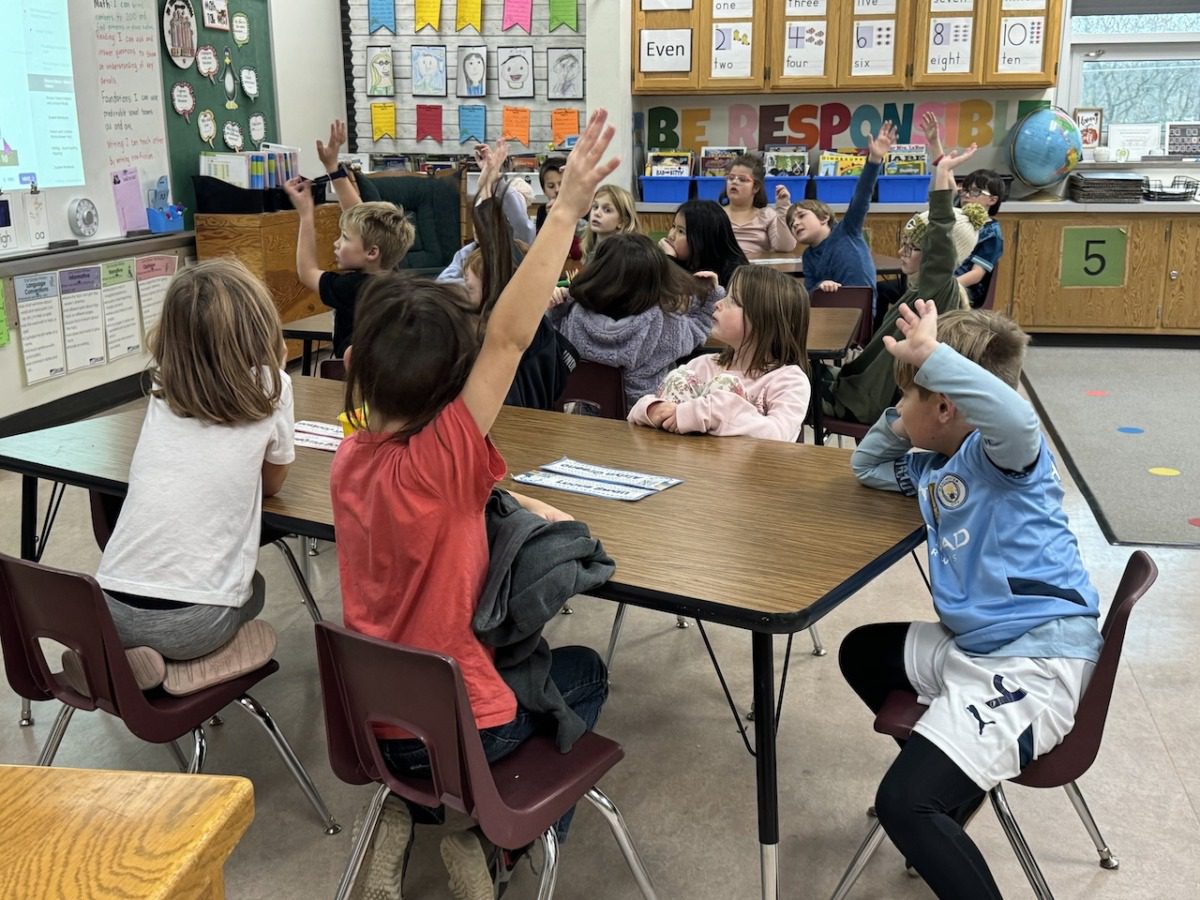
Second graders are learning phonics at Sam Davey Elementary School in Eau Claire. Photo by Salina Heller/UNN
In Wisconsin, the state reimburses public school districts about 31% of the cost for special education services. Meanwhile, the Republican-controlled legislature guarantees a 90% reimbursement rate for private schools.
“Second graders, look at the board,” said Rachel Schank, to her class at Sam Davey Elementary School. “All right boys and girls, say ‘click.’”
It’s time for phonics at the Eau Claire public school, where another teacher is also in the classroom, sitting on a small chair next to a student, helping to sound out and spell words.
“How many sounds are there?” Heather Glaser quietly asks the young girl, as she holds up her fingers and counts.
Glaser’s been a special education teacher in Wisconsin for 23 years. “Watching them grow, just seeing them achieve their successes, working through difficult periods of time and overcoming those difficulties, is all the reward you need in education,” she said.
But getting teachers like Glaser, along with the resources she uses to teach every day, takes money.
Special education funding has been a years-long debate in Wisconsin.
“The lack of attention to special education funding…the reimbursement rate is low. It’s been like that for many years,” said Mike Johnson, Eau Claire Area School District Superintendent.
“When it comes down to the bottom dollar, it’s a significant cost for every district.”
Wisconsin’s public schools get reimbursed about 31 cents for every dollar spent on special education services. That comes from the state budget—all the rest has to be funded by local property tax dollars, which totals about $1 billion each year.
In the Eau Claire Area School District—the eighth largest district in the state with more than 11,000 students—Johnson said the budget for special needs comes up nearly $20 million short because of the legislature’s low commitment.
“We’re proud to serve all of our special education students and their families; in Eau Claire, we are transferring $19 million to cover those costs out of our general operating fund.”
In a previous state budget proposal, Gov. Tony Evers had a plan to get to 60% state reimbursement for public schools, with an eventual 90% rate. Republicans rejected that proposal.
Meanwhile, the Republican-controlled legislature guarantees a 90% reimbursement rate for private schools, through the Special Needs Scholarship Program.
Fewer referendums?
Johnson said in a time when Wisconsin school districts have been increasingly turning to voters to help fund rising costs, greater reimbursements would provide some sustainable funding. School districts around the state held a record 241 referendums in 2024, asking local taxpayers to help cover the necessary expenses.
“The majority of our districts in the state may not have had to go to referendum in 2024 for operating expenses if 60% were fulfilled,” Johnson said. “I truly believe that.”
Wisconsin Superintendent Dr. Jill Underly is calling on the state legislature to make a change.
“Wisconsin’s public schools have been asked to do more with less for too many years,” Underly said.
Her 2025-27 Biennial Budget request would help fill the gaps by using some of the state’s $4.5 billion surplus. She wants to get to that 90% reimbursement rate by 2027.
“My budget proposal reinvests in public education and upholds the responsibility of our state—to ensure our schools have the resources they need to ensure the success of our kids,” explained Underly.
“These investments will significantly reduce the number of referendums for operating costs in local communities, by having the state step up to its responsibilities. We will hold down local property taxes, while investing in education—it’s a win-win.”
Urgent decisions
Underly said districts are struggling to provide services and retain staff, and the state needs to help districts afford the costs.
“These are mandated services and schools need the help,” she said. “Supporting the development of new educators and working to retain them is critical to resolving staffing challenges.
Back in the classroom, Glaser wants what’s best for her students. “My hope is to have highly qualified staff to work with and help our kids grow and flourish and to continue to see them grow and succeed and be happy, well-rounded people.”
Johnson said school administrators want that, too—but need the money to make it happen. He added that administrators have met with lawmakers in the past and will continue to do so to press for what he’s hopeful will be “a significant change.”
“That would be a significant ‘positive’ if the legislature can support that,” Johnson said. “It really needs to happen, it needs to happen for our students. We can’t wait for another biennial budget.”
“We cannot continue to pit our school districts, our school boards, and our administration, against the taxpayer. It’s very difficult and it shouldn’t have to be done.”
Support Our Cause
Thank you for taking the time to read our work. Before you go, we hope you'll consider supporting our values-driven journalism, which has always strived to make clear what's really at stake for Wisconsinites and our future.
Since day one, our goal here at UpNorthNews has always been to empower people across the state with fact-based news and information. We believe that when people are armed with knowledge about what's happening in their local, state, and federal governments—including who is working on their behalf and who is actively trying to block efforts aimed at improving the daily lives of Wisconsin families—they will be inspired to become civically engaged.

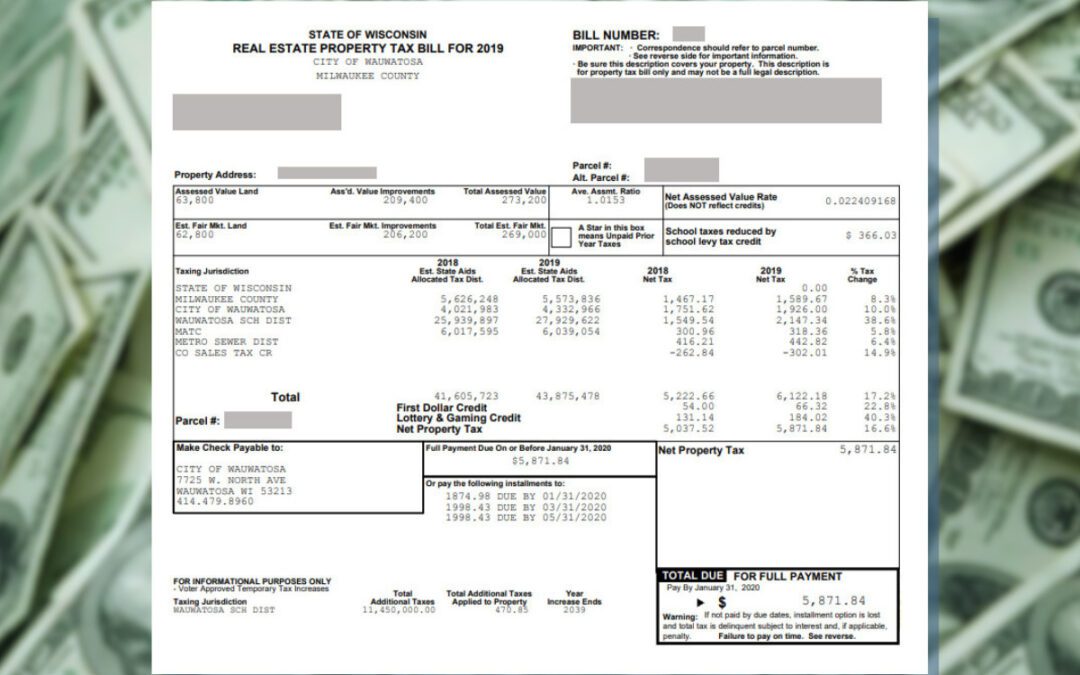
Here’s the real reason your property tax bill is likely much higher — and it’s not ‘the 400-year veto’
It’s not about greedy school boards, it’s about a Legislature literally passing the buck. Everyone would like a big year-end bonus—the kind Clark...
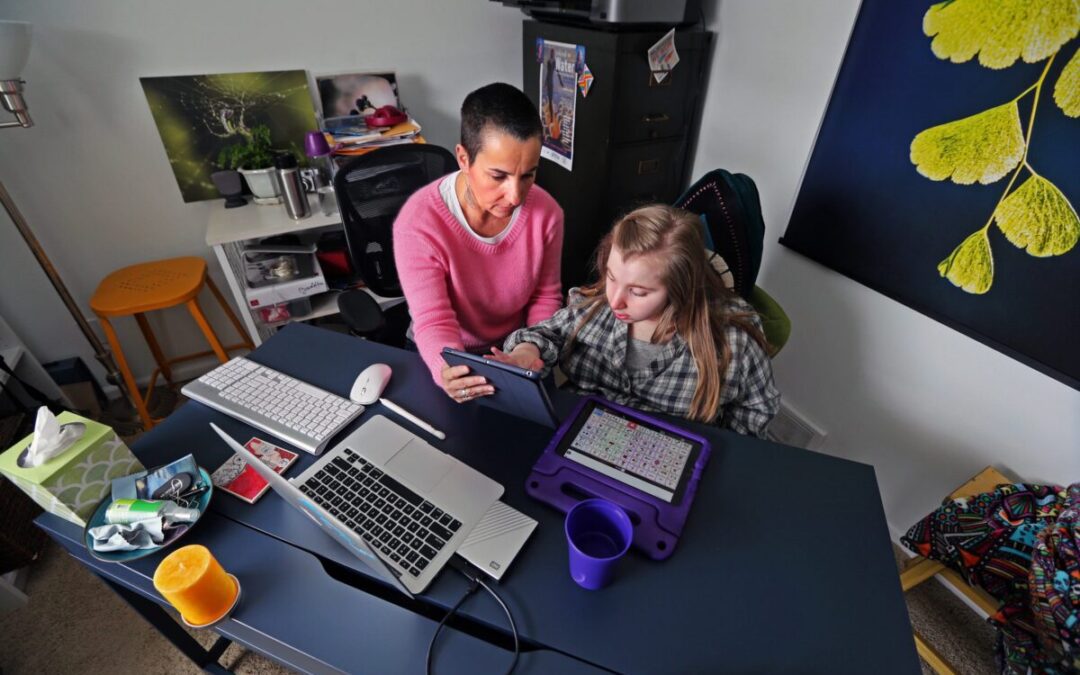
Virtual learning growing in Wisconsin, school leaders say
After eight hours of training at the Milwaukee Ballet Academy, Cecilia Smucker logs onto her laptop for four hours of online learning through...
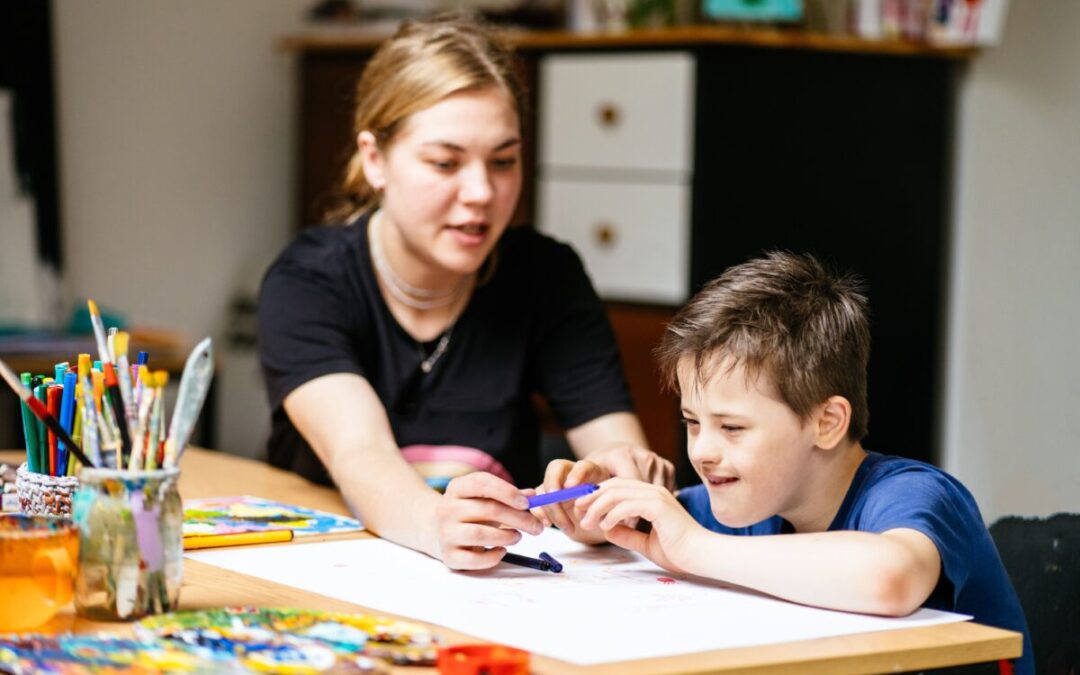
WI teacher: Federal special-ed cuts another blow to struggling state
By Judith Ruiz-Branch A Wisconsin teacher is voicing significant concerns about the recent federal special education cuts and says it’s an...
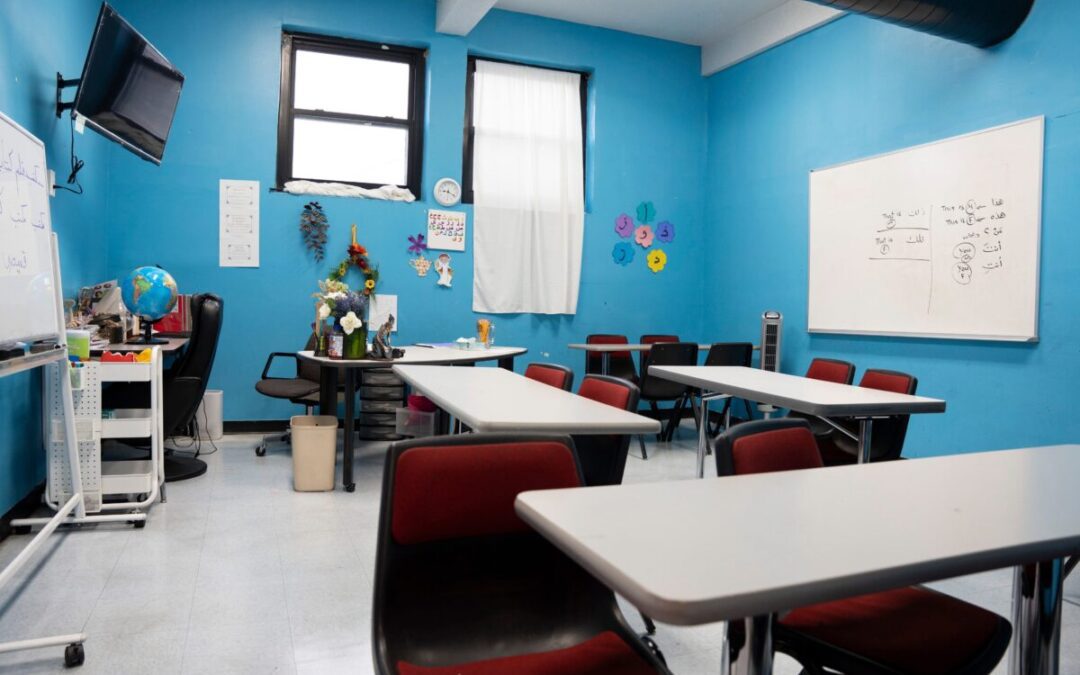
Wisconsin public school enrollment declines continue as vouchers grow, new data show
Enrollment in Wisconsin's public school districts has continued to fall, while other types of schools are gaining students, according to the state's...





